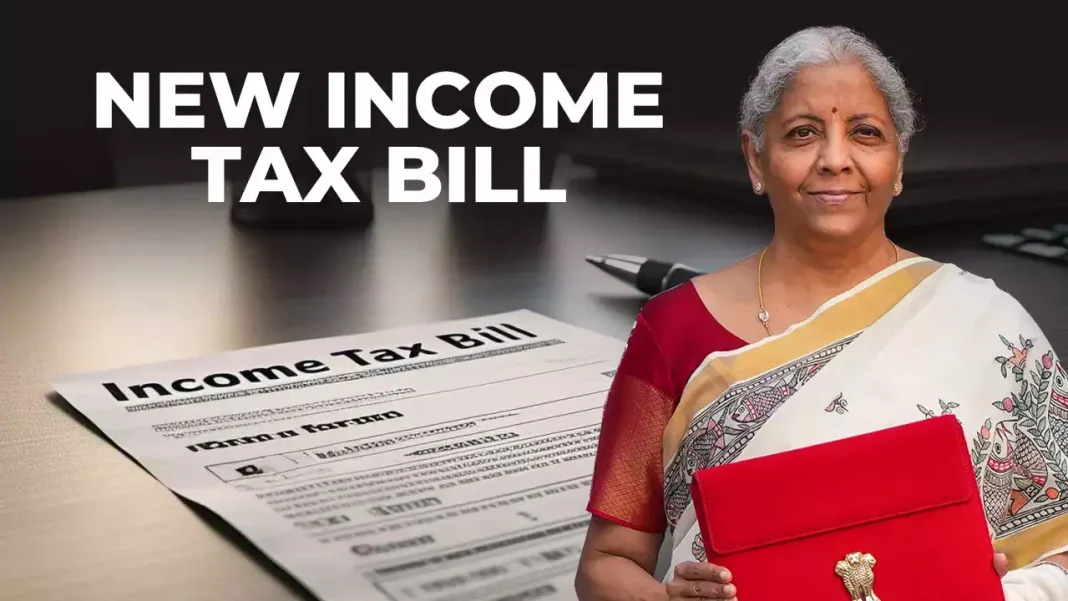In a significant move towards tax reform, the Indian government is poised to introduce the Income Tax Bill, 2025, in the Lok Sabha today, February 13, 2025. This proposed legislation seeks to replace the six-decade-old Income Tax Act of 1961, aiming to simplify the tax system, reduce litigation, and make compliance more straightforward for taxpayers.
In This Article:
Key Features of the Income Tax Bill, 2025
- Simplification of Language and Structure
The new bill comprises 622 pages, a reduction from the over 800 pages of the existing law, achieved by eliminating obsolete provisions and using clearer language. The number of sections has increased to 536 from the previous 298, reflecting a more structured approach to tax administration. The bill retains 23 chapters and introduces 16 schedules, up from 14 in the current legislation. - Introduction of ‘Tax Year’ Concept
Replacing the traditional terms ‘previous year’ and ‘assessment year,’ the bill introduces the concept of a ‘tax year,’ defined as the 12 months starting from April 1. For businesses or newly established professions, the tax year will begin from the date of establishment and end with the financial year. This change aims to simplify tax reporting and assessment processes. - Decriminalization and Reduction of Obsolete Provisions
The proposed legislation plans to drop several outdated provisions and decriminalize many offenses, making the tax system more taxpayer-friendly. This move is expected to reduce litigation and encourage voluntary compliance among taxpayers. - Taxpayer’s Charter
A notable inclusion in the bill is the ‘Taxpayer’s Charter,’ which outlines the rights and obligations of taxpayers. This charter aims to improve transparency, protect taxpayer rights, and ensure fair treatment, thereby enhancing trust between taxpayers and the tax administration. - Stricter Rules for Virtual Digital Assets
In response to the growing prominence of digital assets, the bill includes stricter tax provisions for virtual digital assets (VDAs), such as cryptocurrencies and non-fungible tokens (NFTs). VDAs have been included in the provisions for searches, making them part of any undisclosed income, alongside existing categories such as money, bullion, and jewelry. - Empowerment of the Central Board of Direct Taxes (CBDT)
The bill empowers the CBDT to establish tax administration rules, implement compliance measures, and enforce digital tax monitoring systems without the need for frequent legislative amendments. This change is expected to make tax governance more dynamic and responsive to evolving economic scenarios.
Implications for Taxpayers and Businesses
The introduction of the Income Tax Bill, 2025, signifies a major shift in India’s tax landscape. By simplifying language and structure, the bill aims to make tax laws more accessible and understandable for taxpayers. The decriminalization of certain offenses and the removal of obsolete provisions are expected to reduce the burden of compliance and encourage voluntary adherence to tax laws.
The ‘Taxpayer’s Charter’ is a significant step towards building trust between taxpayers and the tax administration, ensuring that taxpayer rights are upheld and obligations are clearly defined. The stricter rules for VDAs reflect the government’s intent to regulate the digital asset space effectively, ensuring that income from such assets is adequately reported and taxed.
For businesses, the empowerment of the CBDT to implement compliance measures and enforce digital tax monitoring systems without requiring frequent legislative amendments could lead to a more streamlined and efficient tax administration process. This change is anticipated to reduce bureaucratic delays and make tax governance more dynamic.
Next Steps
Following its introduction, the Income Tax Bill, 2025, is expected to be referred to a parliamentary standing committee for detailed scrutiny. Stakeholders, including businesses, tax professionals, and the general public, will have the opportunity to provide input during this review process. The government aims to implement the new law from April 1, 2026, allowing ample time for taxpayers and the administration to adapt to the changes.
The proposed Income Tax Bill, 2025, represents a comprehensive effort by the Indian government to modernize and simplify the country’s tax laws. By addressing longstanding complexities and incorporating clearer definitions and streamlined processes, the bill aims to create a more taxpayer-friendly environment, reduce litigation, and improve compliance. As the bill progresses through the legislative process, its impact on India’s economic landscape will be closely monitored by all stakeholders.
By – Jyothi



